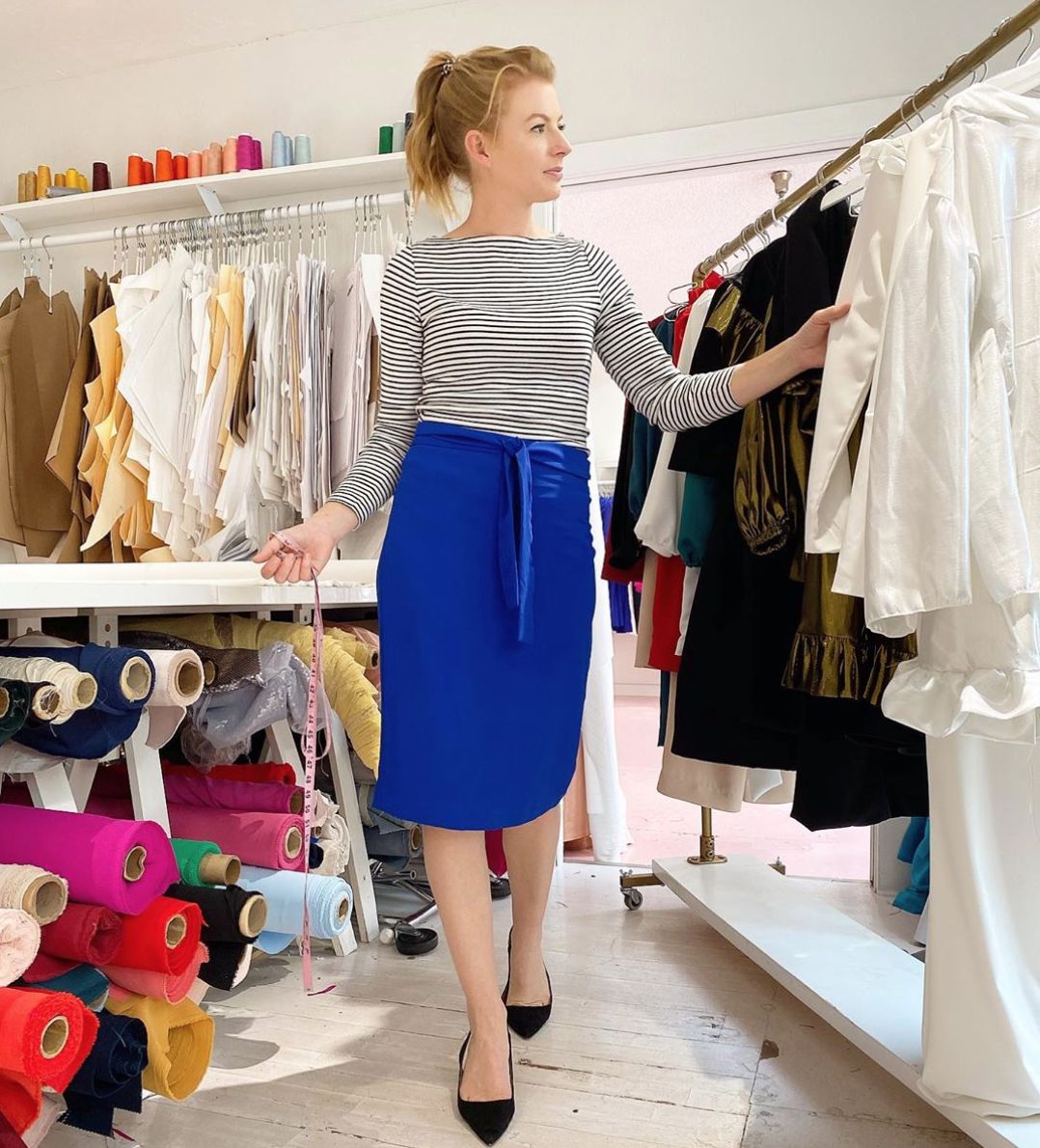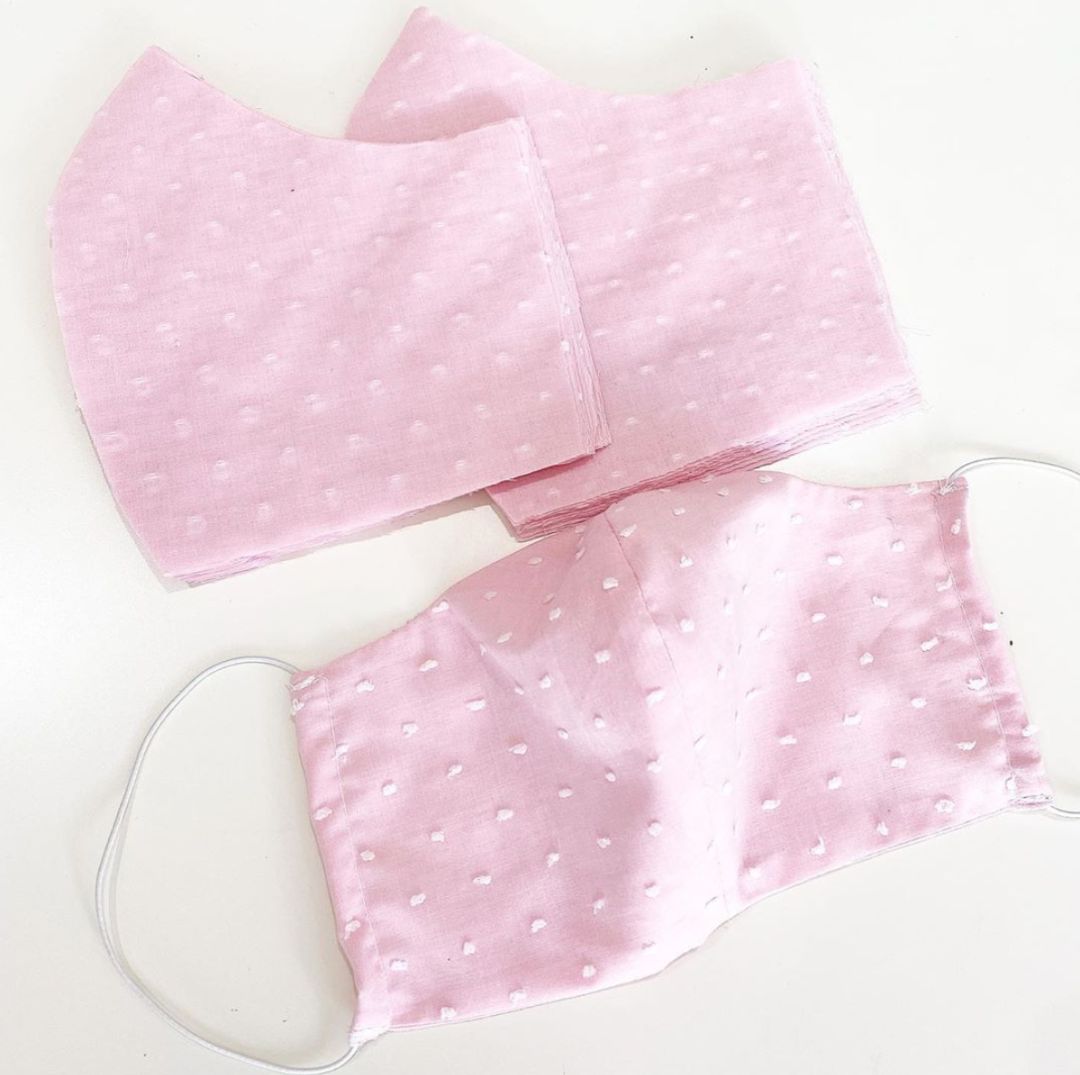Designer Camilyn Beth Offers Sewing Tutorials for Those Wanting to Make Face Masks

Camilyn Leavitt in her downtown Sarasota studio.
Image: Courtesy Photo
When local designer Camilyn Leavitt posted a tutorial for how to make a face mask using leftover scraps of fabric, she was unprepared for the outpouring of support—and need—she received from around the country.
"We're gifting masks to people all over the U.S.—everyone from nurses who work in the E.R. to people with asthma to parents who have children who are high risk and are scared to go to the grocery store," says Leavitt, the founder of the upscale clothing line Camilyn Beth. "Our biggest struggle right now is to find enough elastic to keep up with the need."
Camilyn Beth joins the ranks of designers like Christian Siriano and Ralph Lauren—as well as local organizations like the South Sarasota Modern Quilt Guild—that have shifted their efforts to mask-making to help prevent the spread of the novel coronavirus, which experts say could claim up to 200,000 American lives. In Florida, there are more than 5,000 COVID-19 cases; in Manatee and Sarasota counties, more than 100 combined.
"The virus has affected our regular business because we mainly sell special occasion dresses, and right now all group events are being cancelled, and the boutiques we wholesale to have closed their doors in an effort to help slow the spread of COVID-19," Leavitt says. "I've always run our business based on my gut feeling, and when COVID-19 started impacting the U.S., it just didn't feel right to promote our dresses. Right now, my gut is telling me not to worry about dress sales and to focus on making these masks and teaching others."

A face mask Leavitt made using scraps of pink Swiss dot fabric.
Image: Courtesy Photo
The masks Leavitt makes aren't medical-grade, but she hopes they'll be useful for those who need to go to the grocery store and run other everyday errands and are anxious about the spread of infection. According to the New York Times, the Centers for Disease Control—which previously stated the masks can provide a "false sense of security"—is reconsidering its guidance that healthy people should not wear masks as new data shows high rates of transmission by people who are carrying the virus but show no symptoms. Experts also continue to urge the public to continue to wipe down carts and baskets with sanitizing wipes and refrain from touching their faces. Hand-washing continues to be the most effective way to combat the spread of the virus.
Leavitt says sewing the masks has other important benefits, too. "It's been a great way for me, personally, to relax and calm anxiety," she says. "I'm hoping others will benefit from this, too."



